Author: Kent Larsen
-
Literary DCGD #36: Past, Present, Future
The place of Utah in LDS history is occasionally a topic of lessons like Doctrine and Covenants Gospel Doctrine lesson 36. And while today not all church members live in Utah or want to live there or feel that it is a place to admire, still, it is hard to argue with the fact that…
-
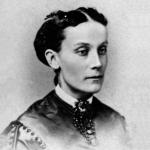
Literary Lorenzo Snow #18: Brigham Young
The world today treats leaders with honor and deference, giving those who manage to become leader of government and society the benefits available to the rich, while shielding them from many of the cares of life, and, at times, from their own errors and sins. Lesson 18 in the Lorenzo Snow manual makes it clear…
-
Literary DCGD #35: Wakeful Winter Nights
In recent years the attention on the tragedy of the Martin and Willie handcart companies seems to have increased. Their situation and rescue has been the subject of books and movies (and lessons) in a process that seems to mythologize the events. The current lesson (#35 in the Doctrine and Covenants Gospel Doctrine manual) explores…
-
Literary DCGD #34: Farewell to my Mother
When we discuss the Mormon trek, the focus is almost always on the physical suffering that many of the immigrants endured while traveling west. While certainly the physical struggle to cross the plains (covered in Doctrine and Covenants Lesson 34) was difficult, the pioneers suffered in other ways also. For example, many left family behind,…
-
Literary Lorenzo Snow #17: The Power of Song
Many of our hymns have a martial air to them, often echoed in their messages. We are called “Christian Soldiers,” marching on to war, and we call to the “Elders of Israel” to join the campaign. And often the Priesthood is called “God’s Army” in an attempt to emphasize, I suppose, its size and power…
-
Literary DCGD #33: To President Brigham Young
We often make assumptions about the past based on our perspective today, and the current Gospel Doctrine lesson about Brigham Young and succession in the presidency is no exception. We know that the senior member of the Quorum of the Twelve becomes the new Prophet, and it is easy to assume that this was always…
-
Literary DCGD #32: Lines on the Assassination
[I’m sorry for the delay in getting this posted. I’ve been traveling a lot the past week.] The martyrdom of Joseph Smith was a shock to his people and one that, as their successors, we still remember and still feel. But in the days following his assassination, the reaction of Church members was one of…
-
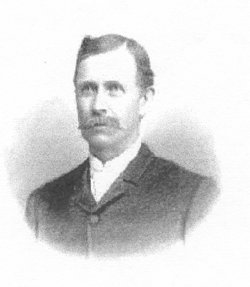
Literary Lorenzo Snow #16: The United Uplift of the Hand
When we speak of unity it is often difficult to understand exactly what we need to do to achieve it. The teachings of Lorenzo Snow in the current Priesthood/Relief Society lesson manual (lesson 16) try to address this, but I’m not quite sure that they give the specifics needed. Should we be united politically? What…
-
Literary DCGD #31: The Lord of Hosts has Spoken
The doctrine of eternal marriage, discussed in D&C Gospel Doctrine lesson 31, is clearly tied to the priesthood (the authority by which such marriages are performed) and to salvation, for salvation in the eternal kingdom is dependent on sealing, both to parents, to spouse and to children. The following poems addresses the role of sealing…
-
Literary DCGD #30: Dedication Hymn
Our doctrine of performing ordinances on behalf of the dead is unusual among the religions of the world. Many religions pray for the dead, Mormonism actively performs the same saving ordinances that the living must have. These teachings were introduced during the Nauvoo period, and baptisms for the dead were performed in the Mississippi at…
-
Literary Lorenzo Snow #15: Our Missionaries
For many members of the Church the most intense period of “faithful, energetic service in the Kingdom of God” during our lives is our missionary service. So it is no surprise that many of the ideas expressed in the Teachings of the Presidents of the Church: Lorenzo Snow lesson #15 are characteristics that we associate…
-
Literary DCGD #29: Farewell to Nauvoo
I’ve long thought that Nauvoo was a kind of Mormon Camelot, a shining, hopeful city built on consistent, righteous principles that fell apart amid internal dissension. While I wouldn’t push the analogy too far, I think it kind of works on the surface, especially given the standard portrayal of Nauvoo in lessons like Doctrine and…
-
Literary DCGD #28: A Prayer
Despair is, I think, one of the most difficult parts of the human condition. While the sources of our despair today are very different from those suffered by the early saints, the feelings are just as real and difficult. Where do we turn for peace? The following poem explores the despair we all feel—the same…
-
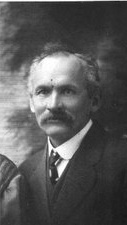
Literary Lorenzo Snow #14: Be Thou My Strength
What do we mean when we talk about help from God? Our religion, and lesson 14 in the Lorenzo Snow manual, teaches us that we should rely on God for the help. Yet when we think about how this help actually works, it isn’t about God doing things for us, at least not usually, its…
-
Literary DCGD #27: Charity and True Patriotism
We often assume in our perception of trials and challenges that the trials aren’t our fault, that these challenges are something that happens to us instead of something that happens as a result of our choices. While it is certainly true that some trials—natural disasters for example—are not by our choice, others are at least…
-
Literary Lorenzo Snow #13: Oh! The Daughters of Zion
What is the purpose of the Relief Society? While we think we understand its purpose based on what the women’s organization does today, the things that Relief Society does have changed radically since its founding in 1842. And the Lorenzo Snow lesson on the Relief Society shows this change, since his comments reflect a focus…
-
Literary DCGD #26: To Elder W. Woodruff
Our understanding of missionary work has changed and evolved substantially over Mormon history. Where we know assume that missionaries are young, during the 19th century missionaries were more mature and married. Where the sacrifices of missionaries today are usually parts of life postponed, during the life of Joseph Smith they meant real hardship for families,…
-
Literary DCGD #25: Awake! Ye Royal Sons!
What should the priesthood mean to us? How should it influence who we are and how we act? These questions are part of nearly every Mormon lesson on the priesthood these days, and lesson 25 of the Doctrine and Covenants Gospel Doctrine manual is no exception. And I think the following poem fits this basic…
-
Literary DCGD #24: Prejudice
I frequently hear claims that many church members are leaving the Church, that those who have been raised in the Church, or who have converted have become disillusioned. For a variety of reasons members do leave the Church, and it may be that they are leaving faster now than they did 50 years ago; although…
-
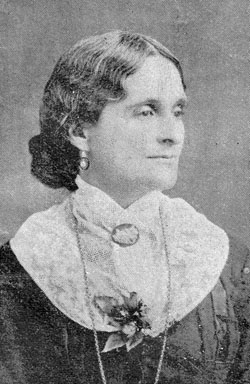
Literary Lorenzo Snow #12: The Christmas Tithing
It is nice to see our duties described in a way that makes clear their role in our communities. Take tithing, for example. Lorenzo Snow’s teachings in the current Priesthood/Relief Society manual (lesson 12) clearly cover our obligation, outlining how much we must provide and how tithing is a commandment of the Lord. But the…
-
Literary DCGD #23: The Transformation
I occasionally see from both inside and outside of the Church those who suggest that Mormons are somehow against education. While there certainly have been some anti-intellectual ideas floating around the Church almost from the beginning, the general tenor of Church teachings have always been supportive of education, and D&C Gospel Doctrine lesson #23 is…
-
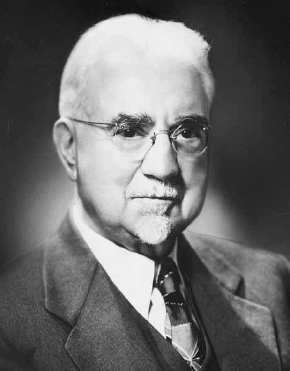
Literary Lorenzo Snow #11: Father! Lead Me Out of Darkness
One of the most difficult concepts for many (perhaps even most) Church members in U.S. culture today is the idea that we should let the Lord direct our lives. Part of the difficulty lies in our desires, which may be righteous, but also may not be what the Lord would have us do. How often…
-
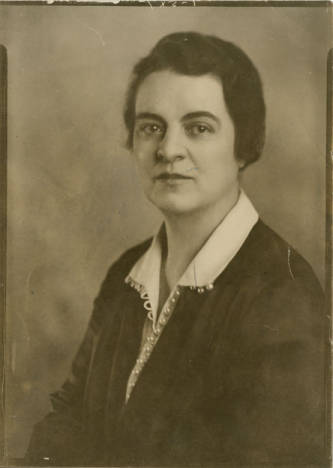
Literary DCGD #22: Because We’re Mormons
The word of wisdom is strongly connected with who we are as Mormons—it has become as much an identifier as pork is for Jews and for Muslims. We emphasize the importance of this teaching in lessons like the current Gospel Doctrine lesson (#22), and we teach it to kids almost from birth. But while section…
-
Literary DCGD #21: Ere long the vail will rend in twain
When we think of the second coming of Christ and the things that will happen in the last days, frequently our focus is on the prophesied destruction and the “signs of the times.” But as the focus of D&C Gospel Doctrine lesson 21 shows, we need not put our focus there, but instead we can…
-
Literary DCGD #20: From The Arcana of the Infinite
It seems like a few verses in the D&C are all we know about the life after this. Lesson 20 of the Gospel Doctrine manual covers D&C 76, 131, 137, and part of 132, and in these scriptures we discover a structure for the hereafter, a segregation of the children of God into groups based…
-
Literary Lorenzo Snow #10: The Temple of God at Nauvoo
We tend to talk about the benefits of the temple more than the obligations. In the temple we may gain knowledge, revelation, be sealed to our families, and give our relatives who have passed on the opportunity to accept necessary earthly ordinances—all important elements described in the Lorenzo Snow manual lesson 10. But these benefits…
-
Literary DCGD #19: Spirit Memories
How thin is the veil? Might we remember bits of our experience there? Could a melody we heard there be familiar to us here? (assuming we even heard melodies there). The idea of the pre-existence and of the other elements of the plan of salvation, discussed in D&C Gospel Doctrine lesson 19, are a source…
-

A Canning Statement from the Church
Given the rumors circulating about closing canneries and the reasons for doing so, Times and Seasons asked the Church’s PR department for a statement and received the following: The Church is not closing canneries and is not limiting the variety of goods available to Church members. Over time, we will be reducing the number of…
-

Post Number 6,000
I just noticed that this is Times and Season’s 6,000th published post. Congratulate us or excoriate us as you wish.
-
Literary Lorenzo Snow #9: Memento
The sacred and eternal nature of families is regularly taught and believed among Mormons today. But it wasn’t seen as quite as obvious to Church members in the middle of the 19th century. The teaching that our family relationships extend past this life and are modeled on the family relationship we had before this life…
